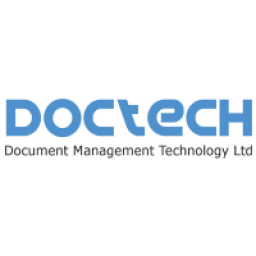Poor invoice processes can have some terrifying effects on a business's cash flow and overall financial health. When invoices are not processed efficiently, payments can be delayed leading to potential petrifying cash flow issues.
Additionally, errors in invoice processing can result in incorrect payments or discrepancies in financial records, leading to costly disputes as well as damaging business relationships.
Poor Invoice Processes
The scary truth is, poor invoice processes can have serious and often frightening consequences for businesses. Here are some of the chilling realities about the impact of poor invoice processes:
Cash Flow Problems
Inefficient invoice processes can lead to cash flow problems as payments are delayed or not received at all. This can disrupt a business's ability to meet its financial obligations, cover expenses or invest in growth.
Revenue Loss
When invoices are not processed, tracked or sent out efficiently, revenue can be lost due to missed or incorrect payments. This can have a significant impact on a business's bottom line and its overall financial health.
Late Payment Penalties
Poor invoice processes can also result in late payment penalties, further draining a business's financial resources. Late payments due to unclear or delayed invoices can lead to additional costs in the form of late payment penalties and interest charges. This is money that could have been reinvested in the business.
Move On From Paper Processes
Customer Disputes
Poorly documented or incorrect invoices can lead to disputes with customers. These disputes can be time-consuming to resolve and may harm customer relationships resulting in lost business. Resolving these disputes takes time and resources that could be better spent on growing the business.
Wasted Time
Manual invoice processing is extremely time-consuming. It can take hours to create, send, and track invoices which requires a greater effort from employees. It takes staff away from more productive tasks and can impact overall productivity.
Increased Costs
Manual invoice processing is often associated with higher operational costs. It requires paper, postage, storage, and manual labour. Additionally, errors in invoice processing can lead to the need for corrections, and invoices having to be re-sent, incurring additional costs.
Additional staff may also need to be hired to handle high volumes of manual data entry and the costs associated with resolving disputes. These additional expenses can eat into profits and limit a business's ability to invest in growth opportunities.
Learn More About Document Management
Lost Invoices
Invoices can get lost with paper-based systems or unorganised network folders. This can result in delayed payments and missed revenue. This lack of visibility around outstanding invoices can create chaos and hinder a business's ability to accurately track its financial position.
Compliance Risks
Failure to properly process invoices can also expose a business to compliance risks. This includes failing to meet tax or regulatory requirements, potentially resulting in penalties, legal consequences or additional audits.
Process Inefficiency
Poor invoice processes are inefficient with manual data entry, paper-based approval processes, and a lack of automation slowing things down. These inefficiencies can lead to errors, delays, and a lack of visibility of a business's financial operations.
Missed Growth Opportunities
Perhaps the most significant consequence of poor invoice processes is the missed growth opportunities. With inefficient processes, businesses may not have the accurate and timely financial information they need to make informed decisions and seize opportunities for growth.
A Damaged Reputation
Late, incorrect, or lost invoices can harm a company's reputation. Customers may associate a lack of professionalism and reliability with a lack of trust which can lead to lost business.
It is clear that poor invoice processes can have a wide range of detrimental effects on a business's cash flow, financial health, and overall success. By recognising these and taking steps to improve invoice processing, businesses can mitigate risks and position themselves for sustainable growth and success.
Your Guide to Automated Invoice Processing
Effective Invoice Processing
Effective invoice processing involves taking a good look at the current process, starting from the second an invoice is received to the moment it gets paid, and reviewing where problems occur as well as any process bottlenecks.
This includes checking how accurately data is captured, whether there is thorough validation, and then how well document approvals happen. With the help of automated invoice processing software, businesses can eliminate the need for manual data entry and reduce the risk of human error. This not only saves time but also improves the accuracy of financial records.
Invoice processing plays a vital role in effective cash flow management. By streamlining the process, implementing the right technology and having employee buy in, businesses will improve the efficiency and accuracy of their financial operations.
Avoid the scary consequences of poor invoice processes and get in touch to learn how our solutions will help. We have 40 years' experience in improving processes and a strong knowledge of document management integrations into third-party finance and ERP systems. Discuss the goals you'd like to achieve with us today.
www.doctech.co.uk info@doctech.co.uk 0161 647 7040.
Get In Touch
 DocTech
DocTech



